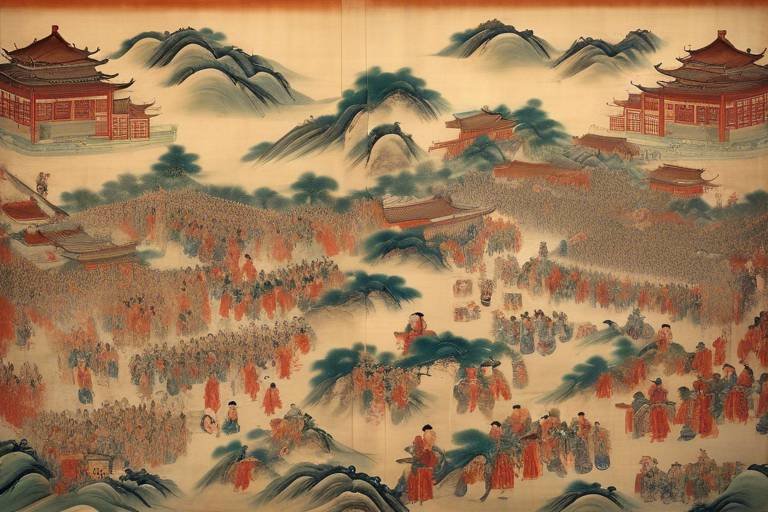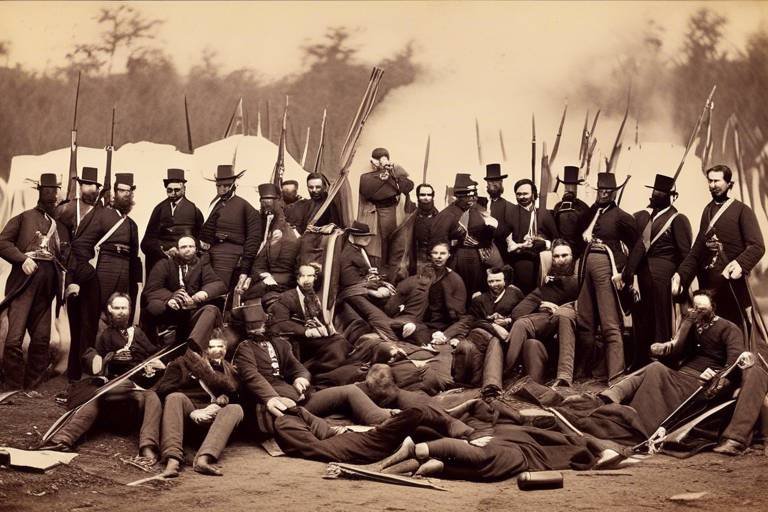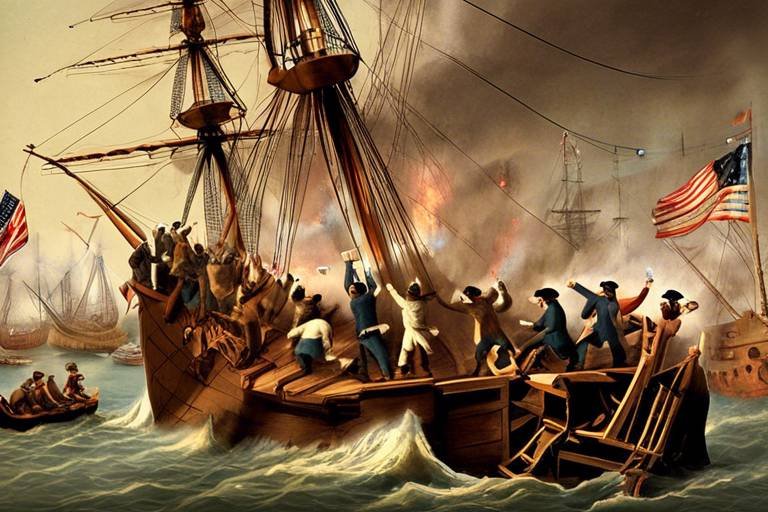The Causes and Consequences of the World Wars
World War I and World War II, two of the most devastating conflicts in human history, were not isolated events but rather the culmination of a series of complex factors that brewed for years before erupting into full-scale global warfare. The causes of these wars were deeply rooted in a tangled web of alliances, militarism, imperialism, and nationalism, creating a volatile environment ripe for conflict.
As tensions escalated in Europe, trigger events such as the assassination of Archduke Franz Ferdinand of Austria-Hungary served as the catalysts that set off a chain reaction leading to widespread devastation. The world witnessed the rapid advancement of technology in weaponry, communication, and transportation, forever altering the nature of warfare and leaving a lasting impact on military strategies.
The consequences of the World Wars reverberated far beyond the battlefields, reshaping the geopolitical landscape, redrawing borders, and redefining power dynamics among nations. The economic aftermath was marked by widespread devastation, inflation, and the emergence of new economic systems as countries struggled to rebuild shattered economies.
Moreover, the social fabric of societies underwent profound transformations, with shifts in gender roles, migration patterns, and cultural attitudes. The experiences of civilians and soldiers on the frontlines forever changed the way people viewed war and its human cost.
Despite the immense loss and suffering, the World Wars left behind enduring legacies that continue to shape our world today. International organizations like the United Nations were established to promote peace and prevent future conflicts, while societies around the world strive to commemorate the sacrifices of those who fought and perished in the wars.

Roots of World War I
The roots of World War I delve deep into a tangled web of alliances, militarism, imperialism, and nationalism that gripped Europe in the early 20th century. The balance of power among European nations was fragile, with each country seeking to assert its dominance and expand its influence. Imperial ambitions fueled competition for colonies and resources, leading to heightened tensions and rivalries.
The intricate system of alliances further complicated the geopolitical landscape, creating a domino effect where a conflict between two nations could quickly escalate into a continent-wide war. The alliance system, particularly the entente between France, Russia, and Britain against the central powers of Germany, Austria-Hungary, and Italy, set the stage for a large-scale conflict with far-reaching consequences.
Militarism also played a significant role in the lead-up to World War I, as nations engaged in an arms race to build up their military capabilities. The glorification of war and the belief in the effectiveness of military force as a means of achieving political goals fueled a dangerous escalation of tensions and a readiness for conflict.
Nationalism, with its emphasis on national identity and pride, further fueled the flames of war. The rise of aggressive nationalist movements in various European countries heightened rivalries and created a climate of intense competition and hostility. The assassination of Archduke Franz Ferdinand of Austria-Hungary in 1914 served as the spark that ignited the powder keg of tensions, plunging Europe into the chaos of the First World War.

Trigger Events
When delving into the that ignited the flames of the World Wars, it becomes evident that seemingly small incidents had monumental consequences. One such event that stands out is the assassination of Archduke Franz Ferdinand of Austria-Hungary in Sarajevo on June 28, 1914. This single act of violence served as the spark that set off a chain reaction leading to the outbreak of World War I.
The assassination, carried out by a Bosnian Serb nationalist, Gavrilo Princip, was a culmination of simmering tensions and rivalries among European powers. The intricate system of alliances and counter-alliances meant that the assassination of a single royal figure could trigger a domino effect of declarations of war.
Moreover, the trigger events of World War II were equally significant, with Adolf Hitler's aggressive expansionist policies playing a central role. The invasion of Poland by Nazi Germany in September 1939 marked the beginning of a new chapter of global conflict, as it prompted Britain and France to declare war on Germany.
These trigger events underscore the fragile nature of peace and the swift escalation that can occur when diplomatic relations break down. They serve as poignant reminders of how seemingly isolated incidents can snowball into catastrophic global confrontations, altering the course of history irreversibly.

Technology and Warfare
Exploring the factors that led to the outbreak of World War I and World War II, as well as the far-reaching impacts these global conflicts had on societies, economies, and geopolitics.
Investigating the complex web of alliances, militarism, imperialism, and nationalism that fueled the tensions in Europe and ultimately sparked the First World War.
Examining the specific incidents, such as the assassination of Archduke Franz Ferdinand, that served as catalysts for the escalation of hostilities into full-blown global conflicts.
During the World Wars, technological advancements played a crucial role in shaping the nature of warfare. Innovations in weaponry, communication, and transportation revolutionized military strategies and tactics. From the introduction of tanks and airplanes to the use of radio communication and encrypted codes, technology transformed the battlefield into a dynamic and deadly arena.
Assessing how the World Wars reshaped the geopolitical landscape, redrew borders, and redefined power dynamics among nations, leading to the rise of new superpowers and the decline of empires.
Exploring the economic aftermath of the World Wars, including widespread devastation, inflation, debt, and the emergence of new economic systems and institutions to rebuild shattered economies.
Discussing the profound social transformations brought about by the World Wars, such as shifts in gender roles, migration patterns, cultural attitudes, and the experiences of civilians and soldiers on the frontlines.
Reflecting on the enduring legacies of the World Wars, including the establishment of international organizations like the United Nations and the lessons learned to prevent future global conflicts.
Examining how societies around the world commemorate the sacrifices of those who fought and perished in the World Wars, and the ongoing efforts to preserve the memory of these pivotal moments in history.
Stay tuned for the frequently asked questions section coming soon!

Global Impact
The global impact of the World Wars was profound and far-reaching, reshaping the geopolitical landscape and redefining power dynamics among nations. The aftermath of these conflicts led to the rise of new superpowers and the decline of once-dominant empires, marking a significant shift in the balance of global power.
One of the most visible effects of the World Wars was the redrawing of borders and the establishment of new nation-states, as empires crumbled and territories were reallocated. This restructuring of the world map had lasting consequences, shaping the political boundaries and identities of countries for decades to come.
Furthermore, the economic impact of the World Wars was staggering, with widespread devastation, inflation, and massive debt crippling many nations. The need to rebuild shattered economies gave rise to new economic systems and institutions, setting the stage for the economic order of the post-war era.
On a social level, the World Wars brought about significant changes in gender roles, migration patterns, and cultural attitudes. Women entered the workforce in unprecedented numbers, societal norms evolved, and the experiences of civilians and soldiers on the frontlines forever altered the fabric of societies around the world.
Moreover, the legacy of the World Wars continues to shape international relations and global governance to this day. The establishment of institutions like the United Nations aimed to prevent future conflicts and promote peace through diplomacy and cooperation, embodying the lessons learned from the horrors of war.
In conclusion, the global impact of the World Wars cannot be overstated, as these conflicts left an indelible mark on the world that continues to influence politics, economics, and society. The lessons learned from these tumultuous periods in history serve as a reminder of the importance of peace, cooperation, and the preservation of memory for future generations.

Economic Consequences
Exploring the factors that led to the outbreak of World War I and World War II, as well as the far-reaching impacts these global conflicts had on societies, economies, and geopolitics.
Investigating the complex web of alliances, militarism, imperialism, and nationalism that fueled the tensions in Europe and ultimately sparked the First World War.
Examining the specific incidents, such as the assassination of Archduke Franz Ferdinand, that served as catalysts for the escalation of hostilities into full-blown global conflicts.
Analyzing the technological advancements in weaponry, communication, and transportation that transformed the nature of warfare during the World Wars and influenced military strategies.
Assessing how the World Wars reshaped the geopolitical landscape, redrew borders, and redefined power dynamics among nations, leading to the rise of new superpowers and the decline of empires.
The economic aftermath of the World Wars was profound and far-reaching. The conflicts left behind a trail of widespread devastation, crippling inflation, and staggering debt for many nations involved. The need to rebuild shattered economies gave rise to new economic systems and institutions.
Discussing the profound social transformations brought about by the World Wars, such as shifts in gender roles, migration patterns, cultural attitudes, and the experiences of civilians and soldiers on the frontlines.
Reflecting on the enduring legacies of the World Wars, including the establishment of international organizations like the United Nations and the lessons learned to prevent future global conflicts.
Examining how societies around the world commemorate the sacrifices of those who fought and perished in the World Wars, and the ongoing efforts to preserve the memory of these pivotal moments in history.
Stay tuned for answers to common questions about the causes and consequences of the World Wars.

Social Changes
During the World Wars, significant social changes swept across societies worldwide, reshaping traditional norms and roles. The impact of the conflicts extended beyond the battlefield, permeating into the fabric of daily life for civilians and soldiers alike. One of the most notable social changes was the shift in gender roles, as women took on new responsibilities in the absence of men who were fighting on the frontlines. Women entered the workforce in large numbers, taking on jobs traditionally held by men and challenging societal expectations of their roles as homemakers.
Moreover, the World Wars triggered massive migration patterns as people fled from war-torn regions in search of safety and stability. The displacement of populations led to the mixing of cultures and the formation of diverse communities in previously homogeneous societies. This influx of new ideas, traditions, and perspectives enriched the social fabric but also posed challenges as communities adjusted to the influx of refugees and migrants.
Cultural attitudes underwent significant transformations during the World Wars, as the horrors of conflict forced societies to confront the realities of violence, loss, and destruction. Art, literature, and music reflected the collective trauma experienced during this period, with artists capturing the emotional toll of war and the resilience of the human spirit in the face of adversity. The wars also brought to light issues of propaganda, censorship, and the manipulation of information, prompting a reevaluation of media and communication practices.
For civilians and soldiers, life during the World Wars was marked by hardship, sacrifice, and uncertainty. The experiences of those on the frontlines, whether in combat or in support roles, left indelible marks on individuals and communities. The camaraderie forged in the crucible of war, the bonds of brotherhood and sisterhood, and the shared trauma of conflict created lasting connections among those who lived through the tumultuous era of the World Wars.

Legacy and Lessons
The legacy of the World Wars is etched into the fabric of history, leaving behind a profound impact that continues to shape our world today. These global conflicts not only reshaped borders and power dynamics but also left behind valuable lessons that serve as a stark reminder of the consequences of unchecked aggression and the importance of international cooperation.
One of the key lessons learned from the World Wars is the necessity of diplomacy and conflict resolution to prevent the escalation of tensions into full-scale warfare. The devastating human and economic cost of these conflicts underscore the importance of peaceful negotiation and compromise in resolving international disputes.
Moreover, the establishment of international organizations like the United Nations in the aftermath of World War II highlights the collective effort to promote peace, security, and cooperation among nations. The World Wars served as a catalyst for the development of global governance structures aimed at preventing future conflicts and promoting stability on a global scale.
Another enduring legacy of the World Wars is the recognition of the sacrifices made by millions of individuals who fought and perished in the line of duty. Memorialization and remembrance play a crucial role in honoring the memory of those who gave their lives for their countries and serve as a solemn reminder of the horrors of war.
As we reflect on the legacy of the World Wars, we are reminded of the fragility of peace and the importance of learning from the past to build a more secure and prosperous future. The lessons learned from these global conflicts continue to resonate in today's world, urging us to strive for a more peaceful and cooperative international order.

Memorialization and Remembrance
Memorialization and remembrance play a crucial role in honoring the sacrifices and commemorating the lives lost during the World Wars. Across the globe, various forms of remembrance ceremonies, memorials, and museums serve as poignant reminders of the devastating impact of these conflicts. These tributes not only pay homage to the fallen soldiers but also serve as educational tools for future generations, ensuring that the lessons learned from the World Wars are never forgotten.
One of the most iconic symbols of remembrance is the poppy flower, which has become synonymous with honoring military personnel who have died in war. The tradition of wearing a red poppy dates back to the First World War and is observed in many countries as a symbol of remembrance and hope for a peaceful future. Additionally, war memorials, such as the Menin Gate in Ypres, Belgium, and the USS Arizona Memorial in Pearl Harbor, Hawaii, stand as solemn reminders of the human cost of war.
Memorialization efforts also extend to preserving the stories and experiences of those who lived through the World Wars. Oral history projects, documentary films, and written accounts serve as valuable resources for capturing the personal narratives of veterans and civilians affected by the conflicts. By documenting these firsthand recollections, future generations can gain a deeper understanding of the human impact of war and the importance of striving for peace.
Furthermore, educational initiatives aimed at teaching the history of the World Wars in schools and universities play a vital role in ensuring that the memory of these global conflicts endures. By integrating lessons on the causes, consequences, and legacies of the World Wars into curricula, educators help cultivate a sense of remembrance and foster critical thinking skills among students. Through education, the stories of those who lived through the World Wars continue to resonate with new audiences and contribute to a collective understanding of the past.
Frequently Asked Questions
- What were the main causes of World War I?
World War I was primarily caused by a complex interplay of factors, including militarism, alliances, imperialism, and nationalism. The buildup of military forces, the formation of entangling alliances, the pursuit of colonial territories, and intense nationalist sentiments all contributed to the tensions that eventually erupted into war.
- How did the assassination of Archduke Franz Ferdinand trigger World War I?
The assassination of Archduke Franz Ferdinand of Austria-Hungary in Sarajevo on June 28, 1914, was a significant trigger event that set off a chain reaction leading to the outbreak of World War I. The assassination heightened existing political tensions and served as the catalyst for Austria-Hungary's declaration of war on Serbia, drawing in other nations through their alliances.
- What were the economic consequences of the World Wars?
The World Wars had profound economic impacts, causing widespread devastation, inflation, and massive debt for many nations involved. The wars also led to the emergence of new economic systems and institutions aimed at rebuilding shattered economies and addressing the financial aftermath of the conflicts.
- How did the World Wars reshape the geopolitical landscape?
The World Wars reshaped the geopolitical landscape by redrawing borders, redefining power dynamics among nations, and laying the foundation for the rise of new superpowers. The conflicts also marked the decline of empires and the emergence of new alliances and global structures.
- What are some of the social changes brought about by the World Wars?
The World Wars brought about significant social changes, including shifts in gender roles, migration patterns, cultural attitudes, and the experiences of civilians and soldiers. These conflicts fundamentally altered societies and had lasting impacts on the lives of individuals worldwide.



















